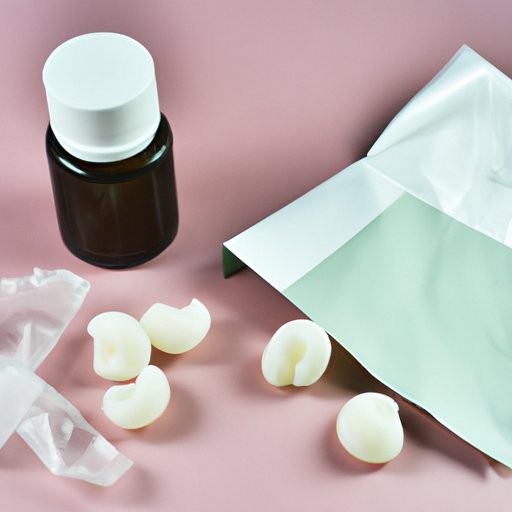
Introduction
How annoying is it when your nose runs relentlessly, especially when you are trying to focus at work or enjoy an outing? A runny nose, also known as rhinorrhea, can be uncomfortable and even embarrassing. But you don’t have to suffer in silence. In this article, we discuss effective ways to stop your nose from running naturally, with over-the-counter medication, lifestyle changes, avoiding allergens, following a healthy diet, and using herbal remedies.
Home Remedies
If you’re hesitant to take synthetic medications, there are natural ways to stop your nose from running. Try some of these home remedies:
Saline Nasal Spray
Saline nasal spray is an effective remedy that is easy to use. It flushes out irritants and mucus from your nose, providing instant relief. You can buy it over-the-counter or make your own by mixing one teaspoon of salt in a liter of distilled water. Then fill a clean nasal spray bottle with the mixture and use it as needed.
Steam Inhalation
Steam inhalation is an age-old home remedy that helps to clear blocked sinuses and soothe nasal membranes. Heat water in a pot and add a few drops of eucalyptus or peppermint oil. Drape a towel over your head, lean over the pot, and inhale the steam for five to ten minutes. Be careful with the hot water and steam to avoid any burns.
Onion under your pillow
Placing a sliced onion under your pillow before sleeping is an odd but time-tested remedy to stop a runny nose. The onion’s pungent smell helps to clear nasal passages and helps you breathe easy.
Medications
In addition to home remedies, over-the-counter medications can help stop your nose from running. Here are three common types:
Antihistamines
Antihistamines are useful for nasal allergies that cause a runny nose. They relieve allergy symptoms such as a runny nose, itching, sneezing, and hives. They can cause drowsiness, so take them before bed. Common antihistamines include loratadine (Claritin), cetirizine (Zyrtec), and diphenhydramine (Benadryl).
Decongestants
Decongestants help alleviate a stuffy nose by narrowing the swollen blood vessels in the nose. They come in pill form, nasal sprays or drops. Nasal decongestants shouldn’t be used for more than three days because they can trigger “rebound congestion.” Common decongestants include oxymetazoline (Afrin), phenylephrine (Sudafed PE), and pseudoephedrine (Sudafed).
Pain Relievers
Pain relievers such as acetaminophen (Tylenol) and ibuprofen (Advil, Motrin) don’t help with a runny nose directly, but they can relieve the accompanying headache and sinus pain.
Lifestyle Changes
Changing your lifestyle habits can prevent a runny nose and curb its recurrence. Here are a few steps:
Increasing Humidity
A dry environment irritates the nasal membrane and leads to a runny nose. Use a humidifier at home to increase humidity levels. Make sure to clean it regularly to prevent mold growth.
Drinking Plenty of Fluids
When you have a runny nose, your body loses more fluids. Make sure to drink enough fluids to stay hydrated, such as water, soup, and herbal tea. Avoid alcohol and caffeinated drinks, which can dehydrate you.
Avoiding Irritants
Avoid irritants that can aggravate your nose, such as tobacco smoke, pollution, and chemical fumes. Wear a mask if you work in a dusty environment.
Allergies
If you have allergies, you can stop your nose from running by avoiding allergens, taking prescription medications, or getting allergy shots. Here are a few steps:
Avoiding Dust Mites, Pollen, and Pets
Dust mites, pollen, and pet dander are common allergens that can trigger a runny nose. Try to keep your surroundings clean, vacuum carpets regularly, and wash bed sheets once a week with hot water. Stay indoors on days when the pollen count is high.
Taking Antihistamines and Allergy Shots
If symptoms are severe, your doctor may prescribe prescription-strength antihistamines or allergy shots to desensitize your immune system. Allergy shots provide long-term relief and can reduce the need for medication.
Nutrition
The foods you eat can play a role in stopping your nose from running. Here are a few nutrients that may help:
Ginger Tea
Ginger has natural anti-inflammatory and antihistamine properties that can stop a runny nose. Drink ginger tea several times a day to reduce inflammation and clear nasal passages. You can mix it with honey and lemon juice if you prefer.
Omega-3 Rich Foods
Foods rich in omega-3, such as salmon, mackerel, and avocado can help halt inflammation and reduce the severity of allergic reactions like runny noses.
Herbal Remedies
Several herbs and essential oils may provide relief from a runny nose. Here are a few:
Eucalyptus Oil
Eucalyptus oil has antimicrobial, antiseptic, and anti-inflammatory properties that can soothe a runny nose. Add a few drops into a bowl of hot water and inhale the steam.
Peppermint Tea
Peppermint contains menthol, which can reduce inflammation and inhibit mucus production. Drink peppermint tea or inhale its steam to relieve a runny nose.
Elderberry Syrup
Elderberry has antiviral and anti-inflammatory properties that can soothe a sore throat and reduce the severity of the common cold symptoms like a runny nose. Take elderberry syrup or lozenges as directed.
Conclusion
A runny nose can be a nuisance, but there are dozens of ways to stop it naturally, with medication, changes in diet, lifestyle modifications, avoiding allergens, and using herbal remedies. Whichever method you choose to combat your runny nose, be sure to talk to your doctor if your symptoms persist or worsen.





